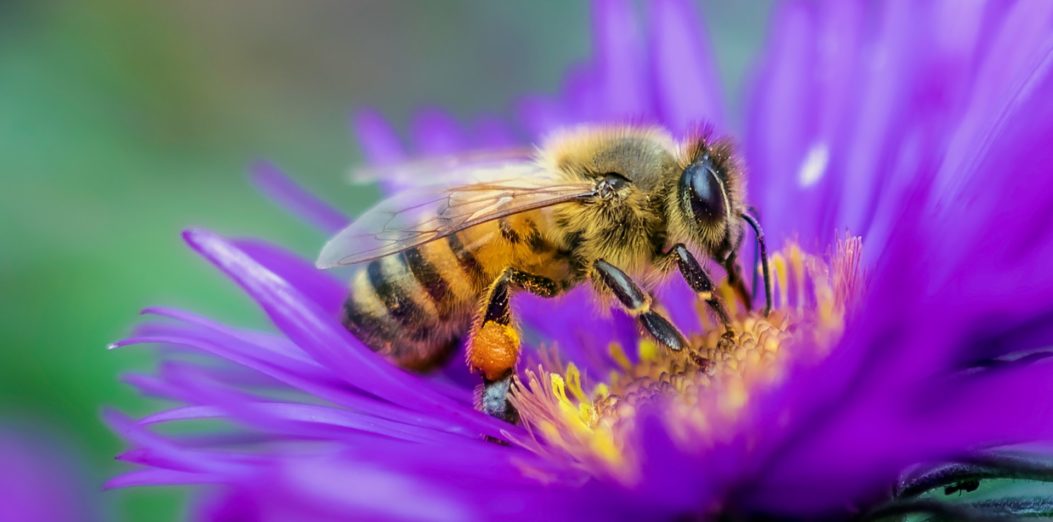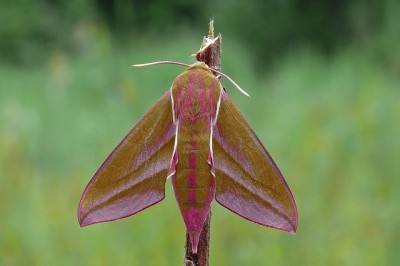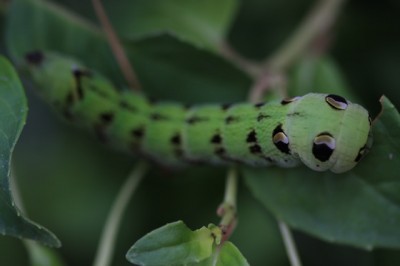How To Attract Insects To Your Garden

This blog was almost called “How To Attract Beneficial Insects To Your Garden”, but when we started to think about what a “beneficial” insect actually is, it became clear that you can potentially describe almost any insect as beneficial – if only in terms of its role in the wildlife food chain. Even the almost universally unpopular wasp spends a lot of its time in early summer catching aphids to feed to the wasp larvae in the nest.
Why?
Most of us want to attract at least some insects into our gardens. They can be beautiful and interesting in their own right (e.g. butterflies). They pollinate plants. Good bugs (e.g. hoverflies) eat bad bugs (e.g. aphids). They provide food for other forms of wildlife (e.g. bats eat moths). And most gardeners these days want to do their bit for conservation and diversity.
How?
- Provide a range of habitats. In addition to lawn and borders, consider having an area where the grass is allowed to grow longer for butterflies. Consider installing a pond, or maybe a wildflower area if you have the space.
- Provide food for insects – throughout the season. For example, bees that have hibernated overwinter will be more than ready for the nectar provided by early flowers. Early flowers will also encourage hoverflies and lacewings to lay their eggs in areas where their larvae can hatch and start to devour aphids and other less desirable pests.
- Plant Buddleja and other plants that are good food sources for insects like butterflies and bees. Some good examples: Verbena bonariensis, Lavender, Erysimum, Origanum, Sedum and Echinops.
- Night scented flowers will encourage moths. Consider Jasmine, Evening Primrose, Honeysuckle and Night Scented Stock.
- Both moths and butterflies will be attracted by plants that will provide food for their caterpillars e.g. nettles.
- Late flowering plants like Ivy can be an invaluable source of food for many insects in October / November.
- Many insects have very small mouth parts(!) so tiny flowers are often very popular – fennel, Borage and Heuchera for example. Conversely, some large double flowers are either sterile or have nectaries which insects find hard to access.
- Don’t be too quick to deadhead plants!
- Try not to use pesticides, especially when the plants are in flower.
- Provide water for insects – shallow pools where there is less risk of them drowning.
- Provide shelter for insects. This might take a variety of forms – log piles, mulch, a few stones, a compost bay or two. A well planted garden, with a few large leaved plants will also provide shelter from the rain.
- If you are really keen, of course, you can also buy or make a bug house, or insect nesting box for the insects of your choice.
The Downside
If you really want to attract insects to your garden, it might be necessary to be a little tolerant of some damage to your plants…
… a few weeks ago, I found that one of my Fuchsias had been almost totally devoured by this huge (it was over 75mm long) and very beautiful green caterpillar and one of its siblings.
 I now know that this is the caterpillar of the Elephant Hawk Moth, which is normally brown but can also be bright green. Having discovered what a beautiful (dusky pink and green) moth the adult Elephant Hawk Moth is, I allowed the caterpillars to have free rein on the one Fuchsia in question.
I now know that this is the caterpillar of the Elephant Hawk Moth, which is normally brown but can also be bright green. Having discovered what a beautiful (dusky pink and green) moth the adult Elephant Hawk Moth is, I allowed the caterpillars to have free rein on the one Fuchsia in question.
In fact, when I found one of the caterpillars desperately trying to make its way to pupate under our shed, I gave it a helping hand as the local magpies were showing an unhealthy interest.
This was a much nicer fate than that meted out to the sawfly larvae that were skeletonizing my roses!
Photo Credits: David Tipping, Darius Baužys
